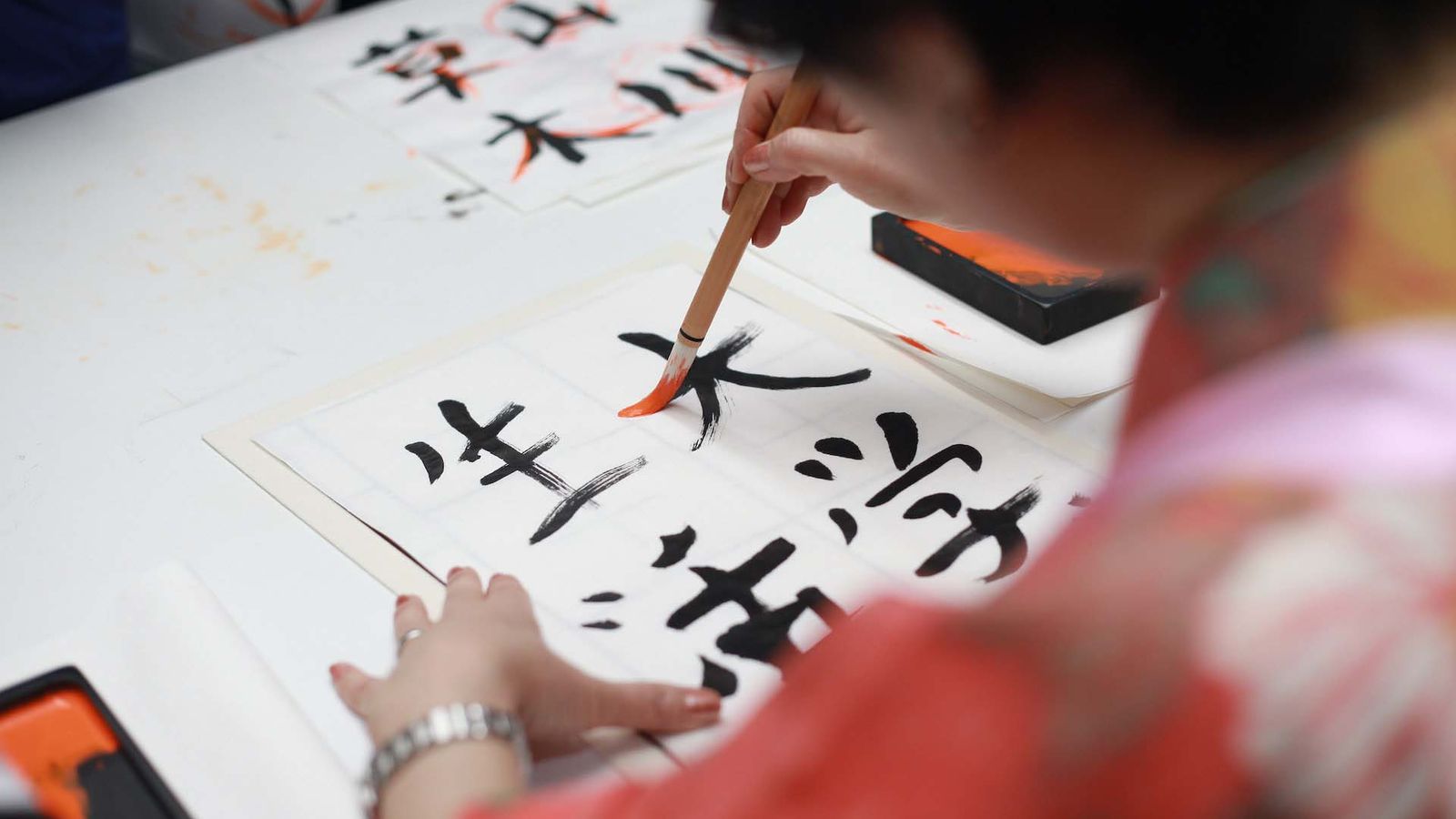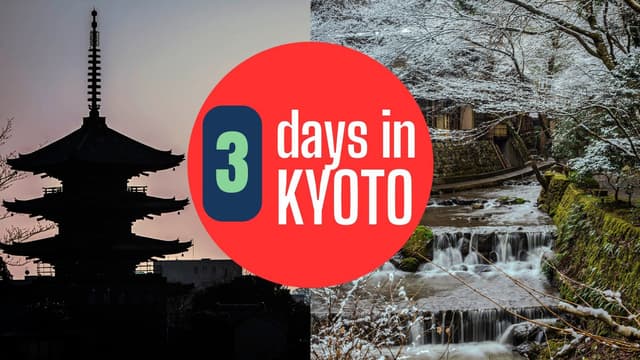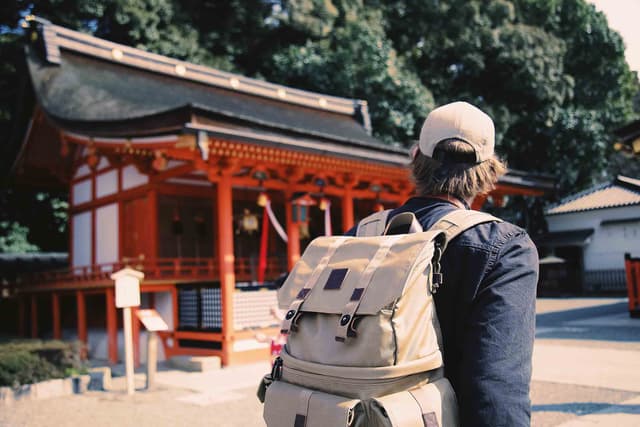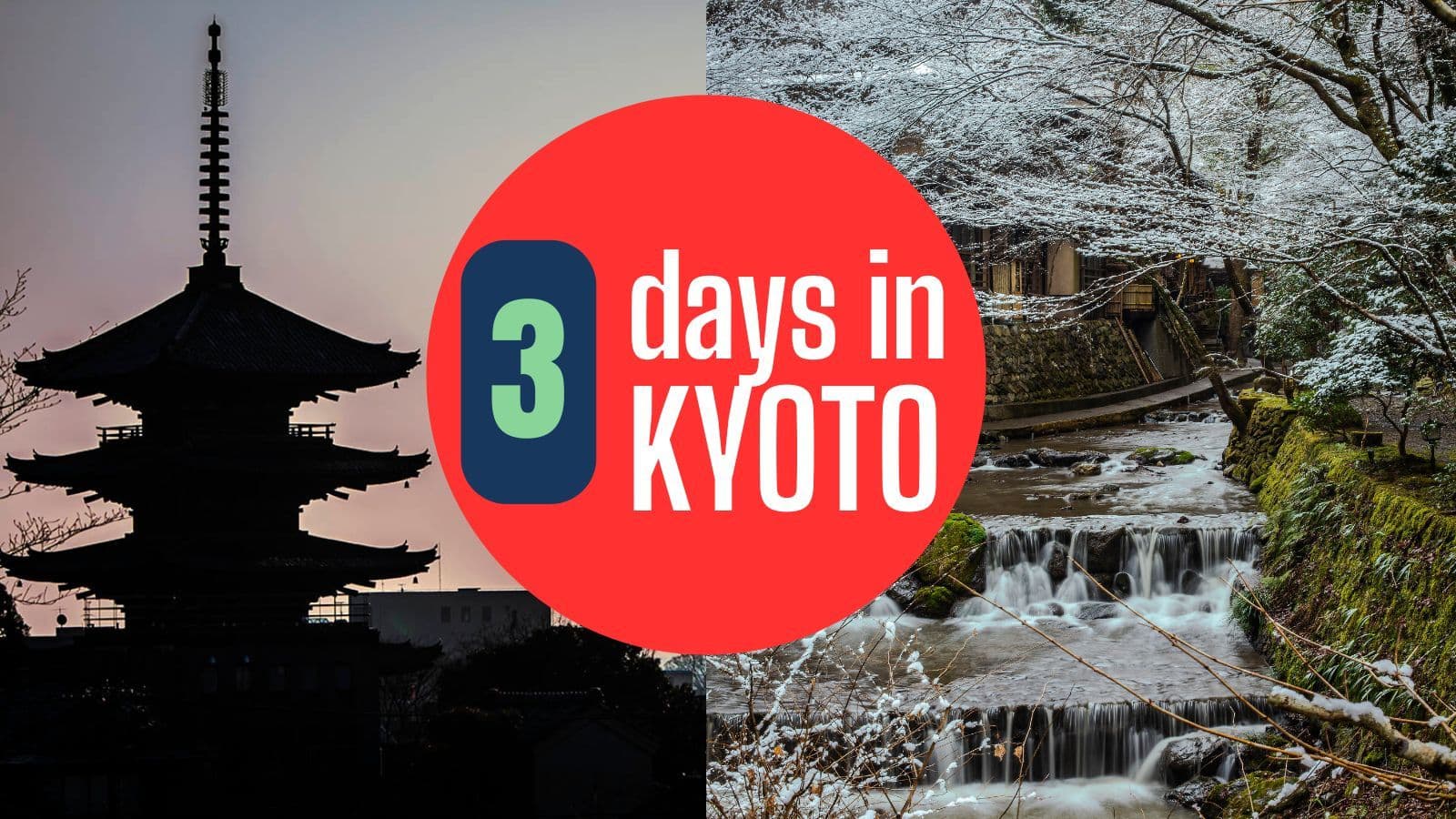

Table of contents:
Is Japanese hard? Yes, Japanese is a difficult language to learn. However, it is not impossible. To get good at Japanese language all it takes is practice and hard work.
If you're planning to move to Japan, I highly recommend you think about studying Japanese. However, if you are planning a short trip to Japan, you should check out our article on the top 20 Japanese phrases for tourists in Japan.

1. Is Japanese Difficult to Learn?
Some people will argue that Japanese language is no harder to learn than any other language. Japanese language contains:
- a multipart writing system with 3 separate Japanese character types;
- A sophisticated grammar system;
- A complex system of linguistic honorifics;
- And various regional dialects.
It always ranks in the top five hardest languages to learn. However, anything that can be considered rewarding rarely comes easy.

2. How Long Does it Take to Learn Japanese Language?
Japanese can take you many years to get fluent. Despite my years of living in Japan, I have still not mastered the Japanese language. ... However, I have seen some people become very fluent within a few years. Those people studied.
2.1. Learning Japanese: Class-Time Study
Some will argue that it takes about 2000 class-based study hours to get to low intermediate level of Japanese. This would be about enough to pass the Japanese Language Proficiency Test level 3 (JLPT N3).
But honestly, Japanese language acquisition is different for everyone. Applying a specific study time frame seems pointless. How ever long it takes varies with the individual.
Popular Articles


Tokyo Favorites: 20 Must-Do Experiences for Travelers

Kyoto Bike Tours: Discover the City’s Hidden Gems with Noru

Kyoto 3-Day Itinerary: Best Things to Do for First-Time Visitors

Universal Studios Japan Tickets: Your Guide to Visiting USJ

Find Out What Japan Really Thinks of Foreign Tourists

Manga Explained: Top Recommendations for Beginners
3. Reading Japanese: Types of Japanese Writing
3.1. A Short History of Japanese Writing
Japan adopted Chinese characters during the 5th Century as the basis of their writing system. Initially, people wrote characters based on their phonetic sound. Therefore, people could swap different characters around to represent a single word or meaning. This was obviously a confusing and unorganized system.
3.2. Basic Japanese Writing: Hiragana & Katakana
The Japanese writing system consists of three scripts (in order of learning):
- hiragana (ひらがな)
- katakana (カタカナ)
- kanji (漢字).
The best way to explain this for English-speakers is to state that both hiragana and katakana represent the Japanese equivalent of an ‘alphabet’. Most Japanese sounds use the five phonetic vowel sounds:

Both hiragana and katakana are reflections of one another since they both stand for the same sound. Most writing situations require the use of hiragana, and people use it with kanji to explain phonetic reading.
On the other hand, we employ the katakana script on its own to represent loanwords, which they borrow from other languages. Look at the following example:

You might have noticed that bread and alcohol don’t seem to represent their English origin. Because these and other English words came from the Dutch.
Japan shut itself off from the rest of the world for 265 years (from 1603 to 1868). However, it continued to trade with the Dutch, which is still evident in the language today.
3.3. Explaining Japanese Kanji Characters
Kanji characters are ideograms. This means that each character represents a single meaning. When combined they create words that take on a more complex meaning or concept.
Japan adapted Chinese characters to their needs. As a result, most characters have multiple readings. A Chinese reading called "on-yomi" and a Japanese reading called "kun-yomi".
For example, the character for ‘listen’ (聞) can use the kun-yomi, which is read as ‘ki’ ( 聞くkiku – to listen). It can also be read with the on-yomi, which is read as ‘bun’ ( 新聞shinbun - newspaper). This makes learning kanji complicated and sometimes confusing.
I’ve included a small table to demonstrate the number of on-yomi and kun-yomi some characters have:

Nouns, adjectives, adverbs, and verbs are all written with kanji. However, unlike Chinese, Japanese cannot be entirely written in kanji. The use of single use of kanji in verbs creates regular (or basic) verbs and a combination of characters creates irregular (or group) verbs. Look at the following example:

Tens of thousands of characters exist, but comprehending a newspaper only requires 2,000 to 3,000. The official kanji for daily use consists of a set of 2136 characters.
Local Insight:
Write characters. A lot. Reading and writing will help you distinguish characters and grasp stroke order. Memorizing by sight is not enough!4. Japanese Grammar: Subject-Verb-Object (SVO)
Why is Japanese so hard to learn? Personally, I think it is because of the grammar.
In English, the grammar word order is subject-verb-object (SVO). However, Japanese grammar is subject-object-verb (SOV). This can often be confusing for native English speakers.
The absence of articles and plurals provides another distinction, such as 'a' or 'the'.

Use the SOV Order. Build complexity from simple sentence forms. Use learner-friendly Japanese grammar texts and online resources. You'll adjust.
5. Honorifics: Polite Japanese
Honorifics are ways of speaking that change depending on how close the speaker is to the person listening. When talking to bosses, coworkers, friends, or even strangers, the use of different word structures and pronouns can have a big impact on what the speaker means.
Honorifics refers to how you address people or what you add to their name. For example (from casual to most polite), Jamesちゃん (chan), James君 (kun), Jamesさん (san), or James様 (sama).
Else, it can refer to a verb suffix at (changing the end of the verb). Either way, be aware that Japanese culture places great emphasis on politeness and respect, and this is reflected in their language choices and the use of honorifics.
5.1. Start with Basic Japanese Politeness
Beginners should focus on polite language (ですdesu, used after an adjective or noun / ますmasu form, used as a suffix at the end of a verb) as a foundation. As you become more comfortable, gradually introduce casual language and more advanced honorifics.
Observing how native speakers interact and employing these expressions in everyday conversations will help you navigate social situations with ease.
6. Pronunciation: Pitch Accent
People who speak English make word sounds with the front of their mouths. People who speak Japanese make word sounds with the back of their mouths.
If you watch a Japanese person talk, you might notice that they move their mouths less or not as much as an English speaker. This is because articulation is different and can be done well with less movement of the front of the mouth.
Local Insight:
Expose yourself to native Japanese speakers through TV shows, podcasts, or language exchange. Go out and meet people! Pay close attention to intonation and mimic speech. Japan has more gendered language. I sometimes get told I sound like my wife!7. Communication in Japanese Culture
You will need to look for opportunities to practice your new Japanese phrases and vocabulary. Many people in Japan will see you and see an opportunity to practice their English skills.
Watch Japanese films, read literature, and explore traditional arts like calligraphy or tea ceremonies. Understanding cultural nuances will enhance your language comprehension and make your interactions with native speakers more relatable.
7.1. Go Talk to Japanese People
- The Japanese you learn in a book can sound different from how Japanese people talk in real life.
- The more you get out and communicate, the less chance you’ll sound like you’re reading from a textbook.
- Remember that learning a language isn't just about words and grammar; it's also about knowing the ideas and values that are part of the culture.
Local Insight:
I used to often go out to bars with no English menus and places where the people spoke little English. It really helped my language ability. I don’t push myself enough to do that these days. I should!8. Consistency and Practice
- Using the language regularly will help you understand it better and give you more confidence.
- Set up a routine for studying! Set aside time every day or week to study and stick to it.
- Use apps, guides, flashcards, or language exchange partners to help you remember what you've learned.
- Watch Japanese anime and read manga (Japanese comics).
- You could also take the JLPT to see how much you know. Having the goal of passing a test that measures your skills can give you something to work toward and could help you feel better about yourself.
9. Conclusion
So, is it hard to learn Japanese? Yes, it has its own set of difficulties, but if you work hard and keep a positive attitude, you can get there. Immerse yourself in the language and culture, use it every day, and enjoy the trip. Learning Japanese can give you a glimpse into a fascinating culture, and your hard work will pay off when you can connect more deeply with the people and practices that make Japan so interesting.
FAQs
Is Japanese a difficult language to learn?
Yes, Japanese can be difficult to learn, especially for English speakers. The writing system has three scripts—hiragana, katakana, and kanji—which take time to master. However, grammar is logical, and pronunciation is simple.
How long does it take to learn Japanese?
It depends on how much time you study. Basic conversation skills can take a few months, but fluency can take years. The U.S. Foreign Service Institute estimates it takes around 2,200 hours to reach proficiency.
What is the hardest part of learning Japanese?
Many learners find kanji (Chinese characters) the hardest part of Japanese. There are thousands to remember, and each can have multiple readings.
Is Japanese grammar hard?
Japanese grammar is different from English but not necessarily harder. The sentence order is subject-object-verb (SOV), and particles replace prepositions. It takes time to adjust, but the rules are consistent.
Can I learn Japanese without learning kanji?
Yes, you can learn basic Japanese with just hiragana and katakana, but kanji is important for reading and understanding the language fully. Many words look the same without kanji, making comprehension difficult.
Loading Comments...

James Saunders-Wyndham
I've been immersed in Japanese culture and daily life for over 30 years and am proud to call Japan my home. Originally from Australia, my journey has taken me from teaching at Japanese universities to traveling extensively across the country, uncovering its hidden gems. As a web developer, I built Romancing Japan from the ground up to share these experiences with you. Whether it's the charm of old Kyoto, the pulse of Tokyo, or the tranquility of the countryside, I love helping others discover the magic of Japan—one story at a time.
Popular Articles

Tokyo Favorites: 20 Must-Do Experiences for Travelers

Kyoto Bike Tours: Discover the City’s Hidden Gems with Noru

Kyoto 3-Day Itinerary: Best Things to Do for First-Time Visitors

Universal Studios Japan Tickets: Your Guide to Visiting USJ

Find Out What Japan Really Thinks of Foreign Tourists
